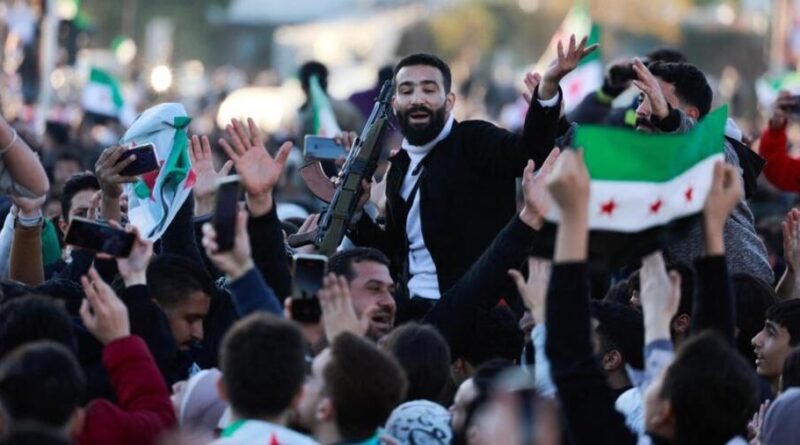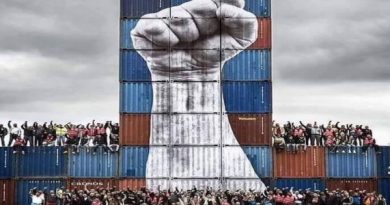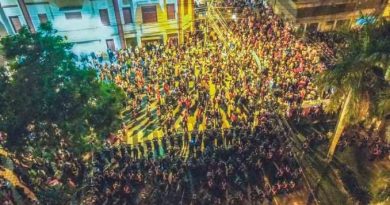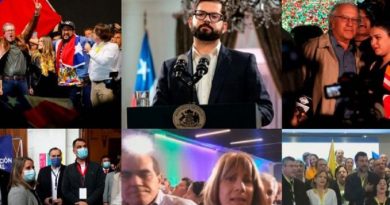Syria: One month after the fall of Bashar al-Assad
A dictatorial government and regime have fallen, but there is a transition that we do not know where it is going. Strong imperialist and Islamic fundamentalist pressures act on the ongoing process to redefine the destiny of the country.. We stand in solidarity with the Syrian people from a socialist perspective.
Historic change in power
He 8 from December to 2024 the government was overthrownBashar al-Asad(Arab Socialist Baath Party). In just eleven days an oppressive regime of 54 years, an event of historical significance that the Syrian people celebrated in the streets as arelease. A heterogeneous militia of Islamic factions in an unstable balance took power1 which placed Ahmed Hussein al-Sharaa in the so-called National Salvation Government of Syria, also known by his nom de guerre as Abu Mohammad al-Golani.
One month after the change in the political situation, The new government presents itself as the driver of a transition that takes place along an intricate path., with contradictory signals, confusing and undetermined destiny. The global stage of class struggle reaffirms the occurrence of wars, revolutions and popular rebellions, crusades over the great problem of the absence of revolutionary leadership so that the process takes a socialist direction.
Fragmentation and political instability
After the fall of Bashar al-Assad and at the end of last year, thousands of members of the Alawite minority2 They protested in various parts of the country after the alleged attack on a temple of their faith. In Homs, central zone, there were several deaths, curfew was imposed and security operations were carried out“large scale hairstyle” to search“war criminals”. There were also incidents in the coastal regions of Tartus and Latakia, Alawite heart in a Sunni majority country.
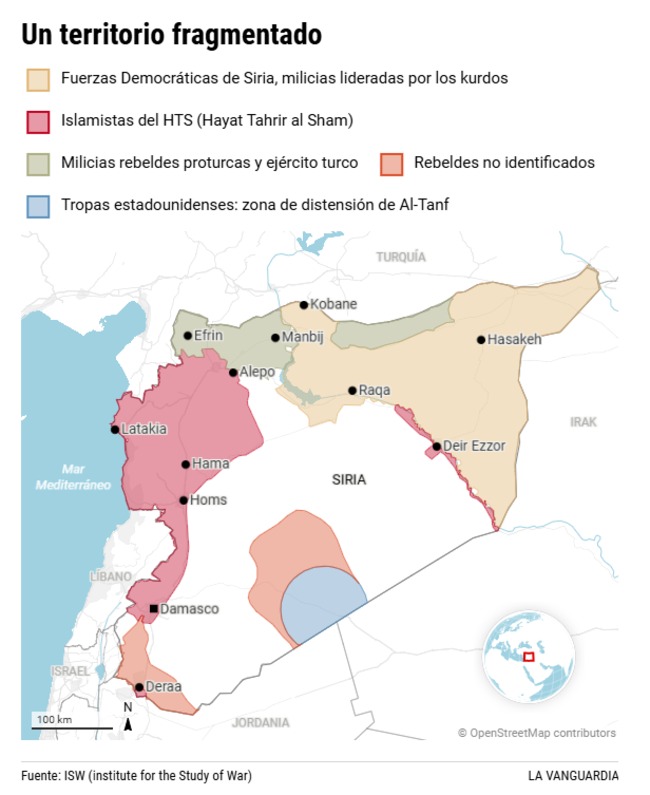
Northeast Syria is controlled by the Kurds, that at first they have brought closer positions with the new Islamist Government, without the parties having announced the arrival of a definitive understanding. The area has become overheated again because the pro-Ankara militias have intensified their attacks on the Kurds and there is an accumulation of Turkish army troops on the border with Kobane. There is a danger that the militias that receive economic and military support from Türkiye will be tempted to take over the Kurdish enclave and suffocate Rojava., since Recep Tayyip Erdoğan considers them a base for the Kurdistan Workers' Party (PKK) who fights vehemently. The old regime was defeated, but hostilities continue on several fronts in an unstable and fragmented territory.
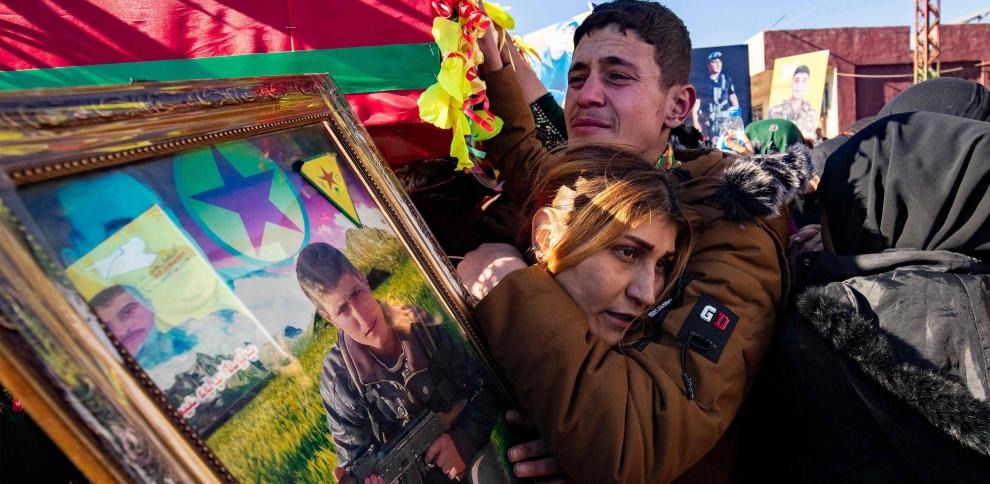
Transition to where??
In different instances the new Syrian government has announced that it wants a country“normal”, what“minority groups will be protected” and that there will be“freedom of expression”. Nevertheless, The population's sentiment oscillates between hope and fear of what is to come, mainly facing the possibility of a strict Islamic government. There are still many unanswered questions.: Who and how will definitively lead Syria?? Will a caliphate be created or will a provisional government remain that calls for a Constituent Assembly, put it to a referendum and call for elections? Will there be a government of national unity, the imposition of one sector over another or military confrontations will occur between members of the rebel coalition?
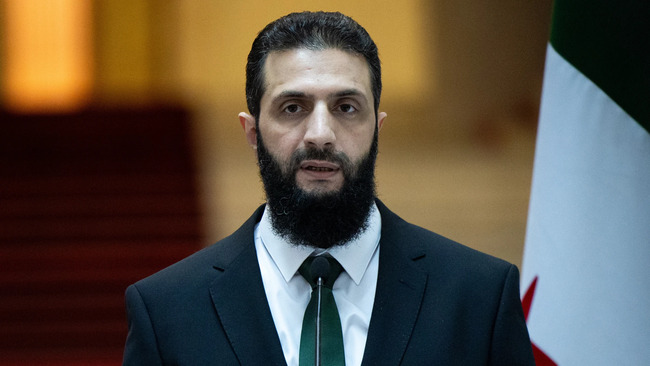
It should be remembered that Sunnis, Alawites, Shiites, Christians and ethnic Kurds have often clashed against each other, either by the Assad government or by the civil war that began ago 14 years, In this sense, it is legitimate to ask: What will happen to the democratic rights of ethnic minorities and the different religions?? What will happen to the Kurds and refugees?? Along with the questions, there are a few certainties: a reactionary institutionality was shattered, The drama of millions of refugees is relocated and the dispute between the powers for influence over the Middle East worsens.
An oppressive and murderous regime fell
After the rebels controlled Damascus and Bashar al-Assad left the country, human rights violations became public, for example, the discovery in Al Qutayfah of a mass grave the size of a football field, in which it is estimated that there are thousands of bodies in unidentified flour sacks, According to Syrian NGOs, There are four other graves with more “disappeared”. The latest count of victims caused by the more than thirteen years of civil war from the Syrian Observatory for Human Rights provides terrifying data: at least 528.592 dead, of them, 181.939 civilians, of which 15.207 They are women and 25.284 they are children. These aberrations rub themselves in the face of those who in the past have miserably aligned themselves with the Bashar-Putin tandem with campist arguments..
The humanitarian drama of refugees
According to the United Nations Refugee Agency (UNHCR) The war has caused the internal displacement of 7,2 million people of whom have recently returned to their areas of origin about 225.000, especially in the regions of Hama and Aleppo. And there are still 6,2 million Syrian refugees outside the country, mainly in Türkiye, Lebanon, Jordan, Iraq, Egypt and Europe. When more people decide to return, they will find populations, destroyed buildings and infrastructure, caused by the bombings carried out at different times by North American forces, French and British on the one hand, and governmental and Russian on the other. The terrible situation of Syrian refugees once again takes center stage in global consideration.
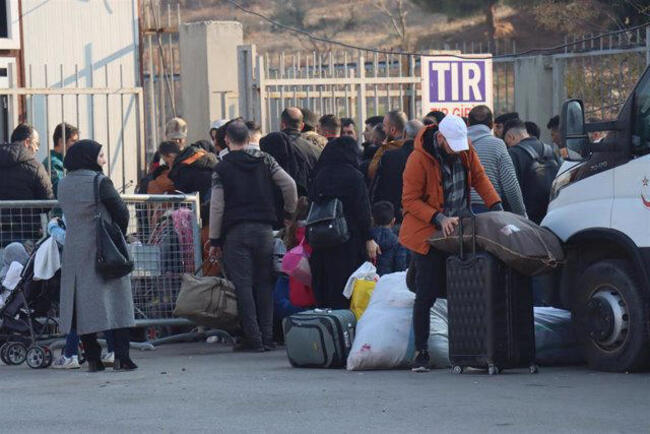
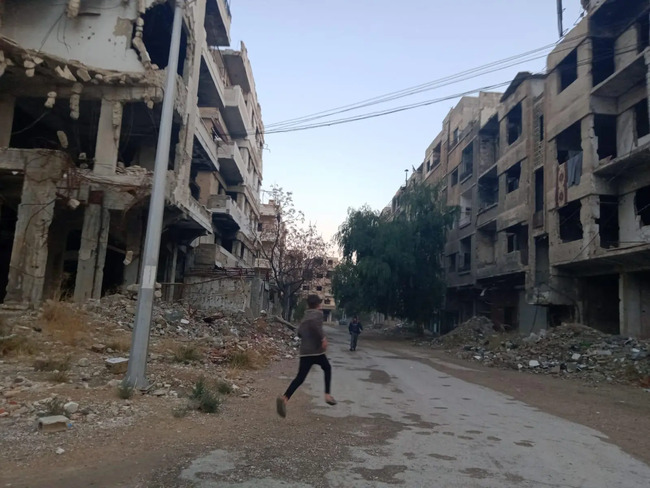
Imperialisms and their partners in dispute
Iran and Russia have been weakened by the fall of Bashar al-Assad, particularly Russia which is concerned about the future of its bases, a naval one in Tartus and another air one in Khmeimim, important for their imperialist interference in the area and in Africa. Israel took advantage of the chaos in Syria to enter the demilitarized zone between the Golan Heights with troops, which it has occupied since the war 1967, which sparked protests from Egypt and the UN. Türkiye feeds the militias fighting the Kurds and considers the insurgents who overthrew Bashar al-Assad as allies. OF. THE. supports the Kurds fighting the Islamic State. The West has initiated contacts with the new Syrian leadership to find out what their intentions are., some countries have reopened their embassies in Damascus and the US. THE. and the European Union evaluate the lifting of the sanctions that had been imposed on the dictatorship, provided that there is“a peaceful transition”. The complexity of the board is completed with the interference of Saudi Arabia, Qatar, Jordan and the United Arab Emirates, who support one faction or another.
From immediate to strategic solutions
We reaffirm the validity of the policy expressed in the declaration of the International Socialist League (LIS) "Syria. One less bloody dictator, an uncertain future” and we stand in solidarity with the Syrian people, just as we did during the Arab Spring and the Civil War.
Since Bashar al-Assad fled with his family from Syria to Russia, enjoy a life of luxury, of the accumulated wealth and the political asylum that the Kremlin has given him“for humanitarian reasons”(¿!). The truth is that Vladimir Putin returns favors to one of his main allies and regional protégés. Bashar al-Assad and members of the regime must be prosecuted and punished for their crimes and human rights violations, without implying a veiled attack on the entire Alawite popular minority.
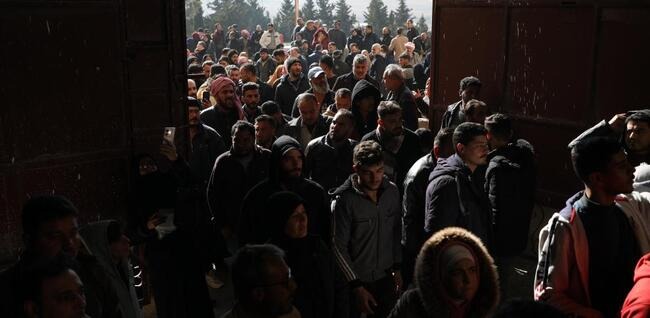
The resident population, refugees return, ethnic minorities, religious and political organizations must have full democratic and social rights. It is necessary to accentuate the threat to women's rights since in an interview with the spokesperson of the new Islamist Government of Damascus, ruled that women, for his“biological and psychological composition”, They are not made to serve in the army or be judges. The country must be rebuilt without economic and political conditions from the capitalist powers., firstly from Türkiye, which has already announced “aid” for the recovery of some aspects of the Syrian infrastructure..
In Eastern Europe, In the Middle East and the Pacific, the dispute for world hegemony has worsened, which is reflected by the intervention of Western imperialism commanded by the US. THE. and the expanding imperialisms of Russia and China, behind which other powers and countries line up. There are no “bad” and “less bad” imperialisms for which to take sides, within the margins allowed by the systemic crisis of capitalism, everyone moves chips guided by their geostrategic interests and not by the well-being of the peoples involved. What is happening in Syria reaffirms the need to raise the flags of unity mobilized against the interference of imperialism in the Middle East.
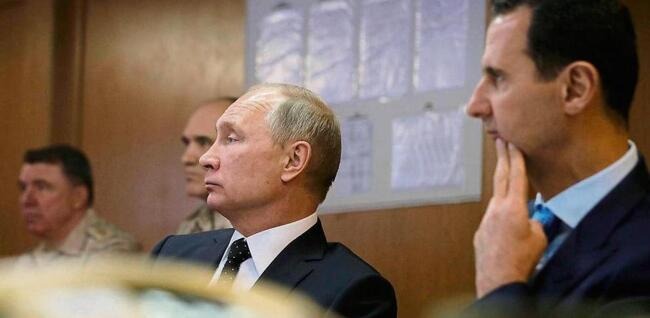
For a month now in Syria there has been a transition underway with no defined destination, with pressure from Islamic fundamentalism, of Turkish expansionism and imperialisms. ISIS is also worth mentioning (Islamic State, Daesh) what, although it is not part of the alliance because it is a rival of HTS, exists and in the current crisis it could be reactivated and regain presence.
In Syria, the working people together with the returning refugees have to debate and decide democratically, imposing with the mobilization the call for a free and sovereign Constituent Assembly to reorganize the country giving priority to the economic and social demands of the population under the matrix of national and social liberation, state secularism for peaceful coexistence between peoples and religions, Kurdish self-determination and solidarity with Palestine and Lebanon in the face of the aggression of the Zionist State of Israel.
Faced with the latent threat that a bloody dictatorship will be replaced by another reactionary regime, the regrouping of the Syrian revolutionary socialists is essential, to fight for an anti-capitalist program. The unity of Syrian socialists is essential to debate and develop policies that respond to immediate needs, carry out common actions and postulate a Socialist Syria as part of the regional strategy of a Socialist Federation of the Middle East. The LIS is committed to this perspective.
1 The rebel alliance is made up of: Committee for the Liberation of the Levant (Hayat Tahrir al-Sham, HTS): Sunni Islamist group that presents itself as a “moderate” force. Syrian National Army (ENS): supported by Türkiye, who joined the National Liberation Front. Syrian Democratic Forces (FDS): Kurdish militias led by the Popular Protection Units (YPG). Free Men of Syria (Ahrar al-Sham): fusion of ultra islamist groups, with influence of the Afghan Taliban.
2 Alawites: branch of Islam derived from Shiism to which the Al-Assads belong.

